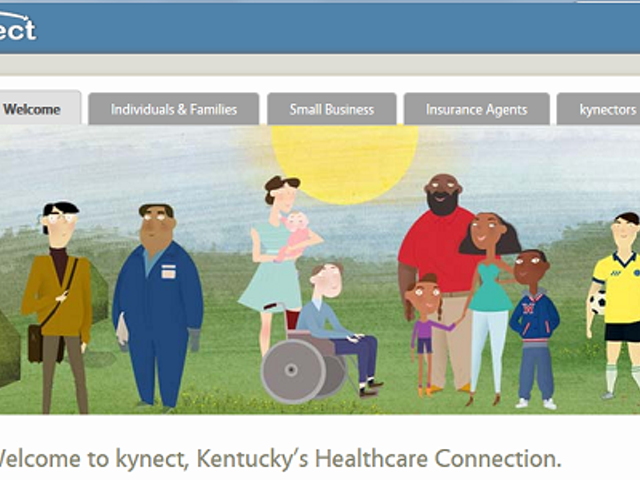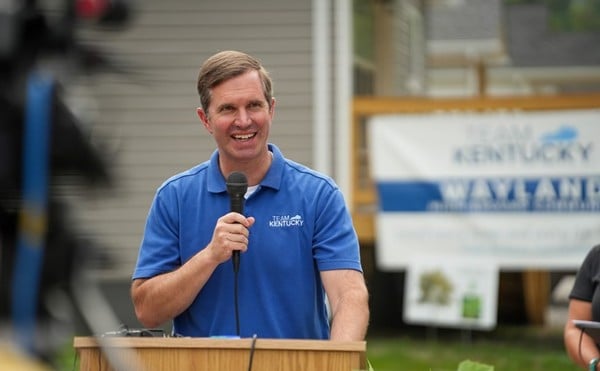At the Network Center for Community Change, Dana Jackson and Jennie Jean Davidson have started using a new phrase: a no-mascara day. It’s code for when the women, the executive director and deputy director, respectively, might want to avoid wearing any eye-enhancing makeup because crying, and all the smudges and smears that come with it, is inevitable.
Lately, every day has been a no-mascara day.
The Network, affectionately referred to as NC3, announced last month it would cease operations on July 11 because of financial issues. Since then, email inboxes and social media have been inundated with messages of support and gratitude. The number of hugs exchanged by NC3’s more than 5,100 members has skyrocketed. So, too, has the number of baked goods showing up in the office break room.
“That’s what’s most gratifying and heartbreaking,” says Jackson, who has been with the organization since the beginning. “It isn’t that we have run out of community support, or energy, or work. We just ran out of resources.”
When I sit down with Jackson and Davidson, they can almost count the number of business days NC3 has remaining on one hand. Half-packed boxes are lined up on tables in the office. The inspirational posters and poster boards filled with plans scribbled down during meetings have started to come down off the walls. A copier that now needs to be sold quietly hums in the background.
For more than a decade, NC3 has organized, mobilized, advocated for and provided direct assistance to Louisville residents. Unlike many initiatives and nonprofits, NC3 never focused on just one passion topic. Everything was equally important to this comprehensive organization: education, food justice, employment, restoration of voting rights for felons, housing.
When members saw that high school seniors were afraid and embarrassed to head off to college because they couldn’t afford the basic household supplies they might need in their dorm or the weather-appropriate clothes needed at an out-of-state university, they banded together to start a program called College Closet that provided those things for them.
Members took ownership of the vacant and abandoned property issue long before the general public even acknowledged there was a problem. They went door to door in order to locate and map out every vacant and abandoned property in the Smoketown and Shawnee neighborhoods, as well as in parts of California and Parkland. They collected the stories behind the data. They handed out flyers containing information about how struggling homeowners could keep their homes from going into foreclosure, potentially keeping them from ever winding up on the vacant properties list themselves.
They organized programs for at-risk high school students called Building Bridges Beyond Graduation that concentrated on leadership and staying positive and focused on academics. According to Jackson, 97 percent of their participants graduated high school. Meanwhile, approximately 300 individuals from more than 50 local nonprofits have participated in and graduated from NC3’s courses in leadership and organizing, called Network 101.
“Sometimes we’d hear from people, ‘You guys focus on too much. You’re doing too much,’” says Jackson. “Well, it all needs to get done. The reality is, for Louisville to be the city it wants to be, all boats have to rise with the tide. There are no spare residents.”
Born backwards
Before it was the Network Center for Community Change, NC3 was part of Making Connections Network and Initiative, a generously funded nationwide Annie E. Casey Foundation initiative in the early 2000s that focused on improving outcomes for disadvantaged children. The local outpost of the Casey initiative was designed to focus on four specific Louisville neighborhoods — Smoketown, Phoenix Hill, California and Shelby Park. However, organizers quickly embraced the fact that deep, durable change could only come on a larger, citywide scale.
Jackson describes those early years of Making Connections as quiet and under the radar — “the work behind the work.” Back then, the focus was more restricted, focusing primarily on economic success, early childhood reading and building strong neighborhoods.
In 2005, organizers decided to bridge together the city’s neighborhoods by creating a network of civic-minded individuals, aptly titled the Making Connections Network. They set what they thought to be a reasonable goal of signing up 200 people within a year. On day one, 160 signed up.
By 2011, the Casey Foundation’s 10-year commitment to Making Connections Louisville had ended, and the organization had officially transitioned to a nonprofit called the Network Center for Community Change with a membership of more than 4,000 people, representing every Metro district and almost any racial or socioeconomic background you can imagine. Though theoretically it was exciting to be completely locally owned and operated, that transition was financially traumatic.
“We started as this big initiative. We started in a secure, capitalized sweet spot. We provided funds to people,” says Jackson. “It’s hard to go from an entity at that high level to, OK, now you’re a nonprofit. Now you’re the seeker of funds.”
Davidson likens it to a corporation suddenly trying to operate as a startup. That just isn’t the natural order of things. Not that this means NC3 was doomed from the start: Unlike many nonprofits that operate solely off donations and grants, they had a built-in source of income through the leadership and organizing course they offered other nonprofits.
“We were diversifying,” says Davidson. “I don’t know of many organizations that, if it loses its lion share, can turn around on a dime. We were getting there. We were funding cash. It was just a matter of time. We ran out. We were running up that mountain, but it was steep.”
When they realized they wouldn’t be able to make the budget stretch, Jackson and Davidson decided to give ample notice to the expansive network, the community, its partners and those who will be the most immediately impacted — its six-and-a-half employees and two AmeriCorps VISTA volunteers.
Going out with integrity was important, the leaders say. They wanted to fulfill all their obligations and allow for a smooth transition with all partnerships and programs. They even decided to go forward with a previously scheduled fundraising event during the most recent Frankfort Avenue Trolley Hop. Every last penny raised would go to fulfill their financial obligations.
Adds Davidson, “We didn’t want to slink away. We went out swinging.”
New and good, y’all
One of the staples of NC3 is Network Nite, a monthly gathering and dinner, typically held at a community center, where members and nonmembers alike can connect with one another and break bread over their common goals. Each Nite begins with a portion called “new and good,” where people can share personal or organizational announcements and express appreciation. More than 70 local organizations have used the space to connect with other groups or individuals.
NC3 held its last Network Nite in late June at the St. George’s Community Center. More people than ever spoke, most of them about the impact the organization had on their life. One employee spoke of how inspired she felt having a boss who, like her, is a woman of color. Other people talked about making connections that led to new passions, employment and romantic partners.
Then there was Kerry Spence.
Ever since he began suffering from spasmodic dysphonia, a neurological disorder that affects the vocal chords and results in impaired speech, the former drug addict hasn’t liked talking in front of crowds. Even at his Narcotics Anonymous meetings, he often found himself too nervous to get through a proper introduction. NC3 helped change that, he told the crowd, starting with his very first Network Nite back in 2011.
“With NC3, they just give me confidence and make me more relaxed,” Spence tells me later. “They just accept me. We’re all here to help each other.”
That has carried over into other parts of his life.
“At my NA meetings, I’m sharing more now. My speech is getting a little better,” he says, before realizing he is selling himself short. “Actually, a lot better.”
Spence says NC3 also helped him reconnect with a former passion and find new ones. Back before drugs took over his life, he used to photograph weddings. By the time he connected with NC3, he only had an amateur film camera, but they liked his photos. They encouraged him to take more. Then, they gave him access to a professional digital camera and asked him to shoot Network Nites and other events.
“Being a recovering addict, I needed an outlet and a support group,” says Spence, adding that NC3 provided him with both and more. “The trips to Frankfort, getting to see how we could talk one-on-one with legislators, that was pretty good. I was never much into politics until NC3.”
Stories like these spill out from the nonprofit: Transplants to Louisville who found their first sense of community through the Network. A struggling high school student being told someone believes in her and for the first time feeling invincible in life. An impassioned lawyer introduced to his career path through a grant funded by the organization. Or a former felon like Russell Alvey, who says NC3 programs helped him recognize that his leadership skills and abilities exist regardless of past transgressions.
A Dismas Charities worker, Avey was first introduced to NC3 when he worked at Network Nite. “I got to experience it from the outside looking in,” he recalls. “When you see that diversity, that every part of the public seems represented … It’s amazing. I wanted to be a part of that.”
More than any data scrub or donation drive overseen by NC3, it’s these personal stories and interpersonal connections that Dana Jackson and Jennie Jean Davidson say they will miss the most. Talking about these people is what brings the waterworks and makes it a no-mascara day.
“What they’ve gained, nobody can take away,” says Davidson. Spence literally found a stronger voice through the group. So many others have done so figuratively.
“The network came about because people needed to feel a part of something and that change was possible. It wasn’t just beating your head against the wall. It was physical change and policy change,” says Dreema Jackson, an NC3 power member and participant in its earliest iteration. “I think the Network has changed the thought pattern of people. From ‘us versus them’ to ‘we together.’”
A friend has a friend
Dana Jackson says her grandmother used to warn her: A friend has a friend, so be careful with whom you share secrets. Luckily, the concept applies just as well to the things worth sharing. “Just because we cease, this doesn’t stop,” she says. “Those relationships we’ve made will produce results. Maybe it won’t look like a Network Nite, but it will continue, because a friend has a friend. They can pay it forward.”
So the Network becomes a network with a lowercase N.
“So long as I’m leading 72 youth, NC3 will never die,” declared Keishanna Hughes, a power member and youth program director, at the final Network Nite.
Yolanda Walker, another power member, says she, too, will still be out in her community advocating for improvements in her California neighborhood and the city at large. “It will just be on a smaller scale.”
She hopes individual organizations don’t slowly retreat from one another. NC3 made it easy for a confused or cautious resident to reach out for help and be given a gentle nudge in the right direction. It was a one-stop shop of sorts, an all-inclusive organization who she not only volunteered with but also benefited from. Her daughter received goods from the College Closet program while their family was going through a tough time.
“Though they did so much, they hadn’t even scratched the surface,” says Walker of NC3. “It’s a whole loss to the community.”
In preparation for NC3’s closure, Spence let a fellow member help him create a Facebook account. Now, he’ll be able to keep in touch with everyone, though he knows he’s likely to still run into everyone offline — this is Louisville, after all.
“The network, it’ll be there, it just won’t be there,” he says. “The network will still be in our hearts.”
Already, people have been talking about the void NC3 will leave behind, though nothing is concrete enough to have been announced publicly. Network Nite might be easy enough to replicate elsewhere, as long as you get enough people to buy in to the replacement. But what about the Network 101, and who might step up to collect comprehensive data and create profiles of West End neighborhoods?
“I think people were just beginning to see the value in those,” says Davidson of the neighborhood profiles, “but this chapter has ended. I’m sad to leave, but I think the new shore will be pretty fantastic.”
If nothing else, adds Davidson, at least she can be asleep at 2:30 in the morning instead of awake and worried about something. Likewise, Jackson jokes she is looking forward to sleeping in past 5 a.m. Both are still committed to equality across Louisville, so they may soon find themselves up late, or early, or both working toward change again.
“It’s still painful to think about,” concedes Jackson, “but Louisville is my home, and I’m committed to the solution."
EDITOR'S NOTE: The original version of this story misspelled the name of power member Kerry Spence. His last name is Spence, not Spencer. We regret this error.






